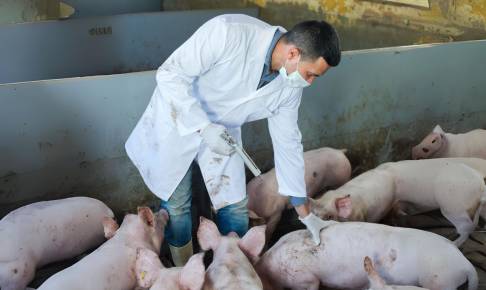FAO: how to achieve Antimicrobial Stewardship, globally
Antimicrobial stewardship (AMS), a series of coordinated interventions aiming to promote the appropriate use of antimicrobials, is the focus of a recent open-access peer-reviewed publication written by a multi-disciplinary team of FAO scientists and published in a special issue of the scientific journal Microorganisms.
The article well explained all the initiatives that FAO is involved in, such as: awareness raising, behaviour change, governance (at the global and local levels), good practices, implementation of AMR-related Codex standards and surveillance.
The authors described diagnostic instruments, such as the Assessment Tool for Laboratories and AMR Surveillance Systems (FAO-ATLASS), and important collaborative initiatives, in particular:
• the International FAO Antimicrobial Resistance Monitoring IT platform (InFARM), which collects data on AMR in animals and antimicrobial use in plants;
• the AMR Partnership Platform, which is a multistakeholder forum that FAO, together with three other international organizations, is putting together to foster a One Health approach for AMR applicable in different sectors and geographic regions.
Furthermore, FAO is working on a campaign to reduce the need to use antimicrobials, studying the possible alternatives and actively promoting the implementation of the Codex Alimentarius AMR standards.
Nowadays, AMR is considered one of the major global health challenges, and despite the considerable socio-economic impacts, the level of awareness of the AMR problem remains extremely inadequate. The authors of the paper stated that, right now, it is essential that we – as a global community - move beyond discussing the problem and focus on implementing solutions.
Source:






















